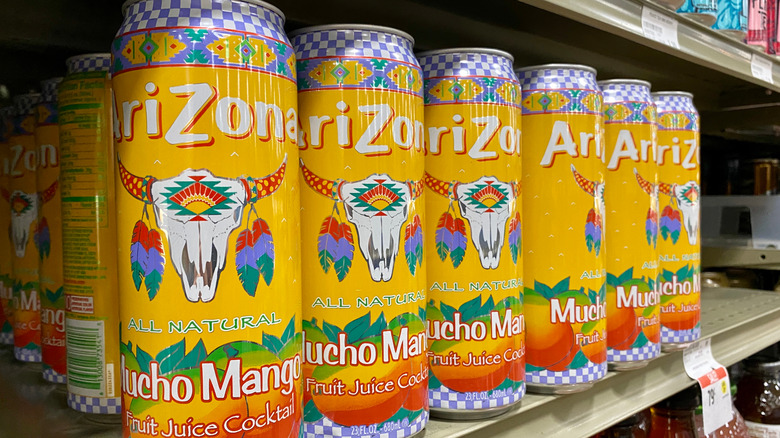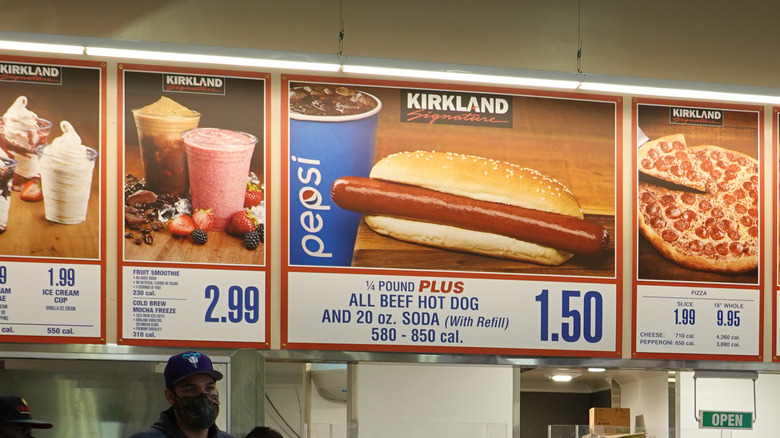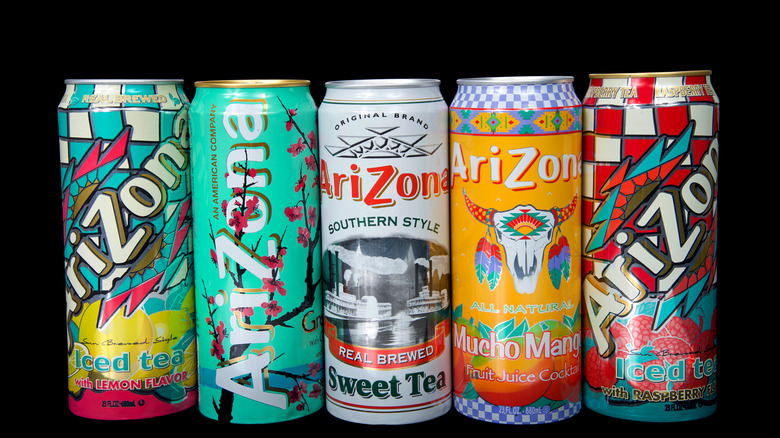The Real Reason The Cost Of AriZona Iced Tea Cans Hasn't Changed
As grocery prices have hit a 13-year record high, it's becoming clear that inflation may be painful for consumers. However, they're no fun for food manufacturers either because they have to deal with rising costs as well. While some are only too happy to pass the price increases on to the customer to keep profits flowing and shareholders happy, a handful of companies are willing to do what it takes to keep prices reasonable. One of those companies is AriZona, whose cans of iced tea still cost 99 cents. The company's owner Don Vultaggio told The Los Angeles Times that there is a reason for that. "I'm committed to that 99 cent price — when things go against you, you tighten your belt. I don't want to do what the bread guys and the gas guys and everybody else are doing. Consumers don't need another price increase from a guy like me."
It would be easy to think that Vultaggio's decision is an easy one to make, but that would be far from the truth. Like every person and every company at the moment, AriZona faces higher prices. For instance, the cost of aluminum used to make AriZona's distinctive giant, 23-ounce cans, has gone from $1,750 per ton 18 months ago to $3,250 today. Given that the cost of making the big can has gone from almost five cents to nearly 10, The LA Times figures that comes out to a loss of $45 million a year.
Costco's hot dog combo is inflation-proof, too
AriZona might sound like an outlier, but it wouldn't be the first company in America to give profits a hard pass in order to give back to its loyal customers. When Costco first began selling its iconic hot dog and soda combo in 1985, it charged a dollar fifty, and as Insider points out, that price hasn't changed in decades. That's all down to the company's founder Jim Sinegal, who purportedly warned incoming CEO Craig Jelinek that if he "raise[d] the [price of the] effing hot dog, I will kill you. Figure it out."
And Jelinek did just that, because when the price points became a challenge, Jelinek chose to abandon Costco's supplier, Hebrew National, and had a hotdog facility built in Los Angeles and Chicago. The move allowed the company to keep the price of fan-favorite meal where it was. In 2019, Costco food courts sold 151 million hot-dog combos for a gross sales of $226.5 million.
AriZona has a minimal marketing budget
Just as Costco's hotdogs could be considered good advertising or something to draw in customers, AriZona relies on its products to attract and keep its consumers' attention so it saves on advertising. "Most brands in America today believe they have to go out and have a Super Bowl commercial or do traditional advertising," the company's owner Don Vultaggio told The Los Angeles Times. "When we first started, I didn't have the money for that — so each can had to be like a billboard. That's why I chose the big can. It stood tall." The company's marketing isn't the only lean line item in the budget, as it only has 350 members of staff in its offices, and has hired 1,500 others across the country.
It doesn't appear as though Vultaggio will jack up the cost of AriZona anytime soon. "It's been like that since cavemen, the 99-cent price point was exciting then, and it's exciting today," the drinks mogul says. "Something under a dollar is attractive. I started out as a blue collar guy, and budgeting your finances on a daily basis was a part of life." His commitment seems to be the real reason the price stays low for all the popular AriZona tea flavors.


